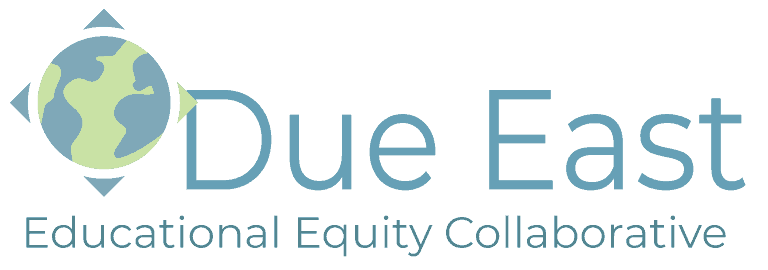It’s That Time of Year Again! Focusing Equity within Holiday Celebrations at School
It is that time of year again… I hear sleigh bells!
Well actually, I’ve never heard sleigh bells ring, but it is the time of year that we call the Holiday Season. The season that kicks off with Thanksgiving, reaching a crescendo with Christmas, and culminating in New Year celebrations. All these holidays are fully commemorated by our retail industry, media industry, work and school calendars, and wide-spread social reinforcement.
I was raised celebrating these holidays. And I still celebrate them with my family and friends in our own ways. I have many happy memories and heartfelt traditions connected with the “holiday season,” all supported and reinforced by the institutions of our country. I am privileged that the work and school calendars conspire to give me time and opportunity to celebrate the days that align with my personal holidays. Wouldn’t it be more just and equitable if everyone’s holidays and celebrations were supported by the institutions of our country? Wouldn’t it be great if our institutions conspired to support and recognize people who are celebrating the Navajo’s Nightway, Ramadan in in Islam, or Rosh Hashanah in Judaism? I think so! But this blog is not about what we celebrate in my home, with my family, in my church, or my community. It is also not a critique of what you celebrate in your home, with your family, in your faith, or with your community. This blog is about what we celebrate in public schools. And I am calling on public schools to end holiday season celebrations.
Yikes! Who invited this gloomy human to the party?
Well first, some context. Public schools require mandatory attendance for students. If you do not attend, you will face truancy consequences. Therefore, the curricular and celebratory choices we make as educators are experienced (for good or for bad) without choice or relief by our students. Also, public schools are gathering and learning places for students, families, and professionals of many faiths, many traditions, many values, many celebrations. I imagine most people are attached to their favorite celebrations just like I am. But sadly, school calendars, traditions, and curriculum are not designed to value, support, or emphasize a wide array of celebrations. Schools privilege some students and families’ celebrations and minimize, ignore, or outright marginalize other students and families’ celebrations. Holiday celebrations are one of many equity issues present in state sponsored, state mandated education. And one that we can address rather quickly and uniformly: stop celebrating religious or cultural holidays in school. Leave that to Every. Other. Corner. of society.
Let me set the stage. Often when I visit schools in the months of November and December, I see walls filled with student artwork honoring Thanksgiving and Christmas. I am invited to “holiday” student performances filled with Christmas carols, I see the classroom Christmas tree, maybe even gift exchanges or gift and food drives designed to coordinate with the specific days of Thanksgiving and Christmas. People cheerfully wish each other “Merry Christmas” and wear Christmas-themed sweaters. Children are righteously reminded of the “reason for the season” (kindness, gratefulness, giving) as if these lessons are not applicable all year or connected with any other faith or cultural celebrations. Children are taught to celebrate and idolize whiteness with images of white Jesus, white Santa, and “friendly” Pilgrims.
Stop it!
And FYI– no!… tokenized efforts at representation or masking our deeper intentions do not exonerate or make allowances for these non-essential celebrations. Adding a Hanukkah student art project, a Kwanzaa song to the student performance, or a short reading about Eid, Diwali, or Chinese New Year does not change the overall centering of whiteness and Christianity in schools. Also, let’s be honest, “winter celebrations” or “snowflake week” the week before– ahem– *Christmas break* is obviously still celebrating Christmas. Tokenizing other cultures and masking our intentions are prevalent “inclusion” tactics that do not fully address the equity concerns: the fact that some students and families’ celebrations and traditions are centered while many students and families’ celebrations and traditions are marginalized. If we want to have an academic study of a diversity of cultures, religions, history, celebrations etc. Sure… absolutely! Incorporate that learning. These are important ideas and foundational information to learn about ourselves and each other. But guess what? The unit/lesson does not have to conveniently happen in December… as a cover for the Christmas celebrations we really want to have. What I am recommending is an elimination of these traditional, whiteness- and Christian-normative holiday celebrations in our schools altogether.
Ouch. Maybe that notion makes some people feel sad, nostalgic, or a sense of loss. But we have other, and quite frankly better options.
Public schools are a primary learning space for the vast majority of children and should be an affirming space for all students. Of course, celebrating together is fun. And learning should be fun. Celebrating is great for connecting and building community. Celebrating is rewarding and makes good memories. Schools, classrooms, educators, learners should celebrate! And I will happily join the party. But… as we plan our celebrations, please consider that there are many different subjects and achievements we can celebrate throughout the year. Celebrations that include everyone. We can celebrate our school community, health, nature, kindness, science, justice, curiosity, family, FOOD… hmm… and now I am thinking of all the fun Pie (π) Day celebrations we had in my math classes as I was growing up… oops, got distracted. But, point made, there are many things we can celebrate as a community of learners without elevating some family and community traditions while marginalizing others. We can do better… we can celebrate learning and knowledge. So, go ahead, celebrate the science, culture, renewal and wonders of winter! Just please, do not do it with a December Christmas cookie bake off…
Reflection Questions:
- Do you feel any feelings of loss when thinking about eliminating traditionally celebrated holidays at school? Why? How do those feelings influence your decisions or practice as an educator?
- In what ways do your school’s sponsored celebrations privilege some students and families while marginalizing others? Who is privileged? Who is marginalized? What might be the impact on students’ school experiences or academic growth?
- How would your school community react if you stopped celebrating traditionally celebrated holidays? How could you help to shift the school community toward more equitable celebration practices?
- Read the case study Teaching Thanksgiving from the book Case Studies on Diversity and Social Justice by Paul Gorski and Seema Pothini on your own or with colleagues.
- Can you relate to any of the educators in this story? How so?
- In what ways does teaching Thanksgiving privilege some students and marginalize others? How does teaching Thanksgiving reinforce harmful narratives?
- How would you address these equity concerns?


